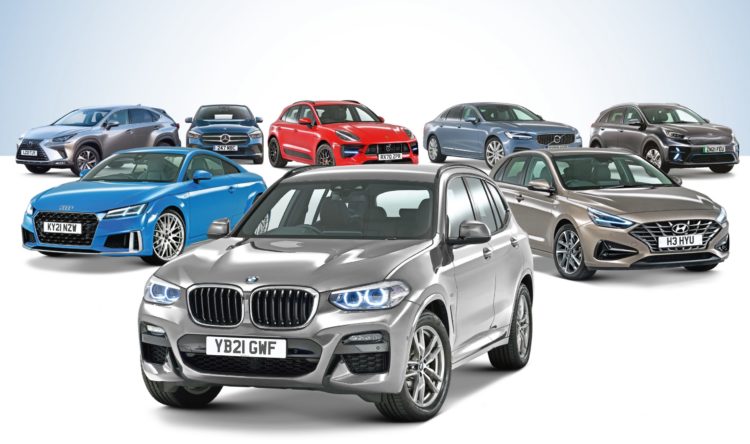A negative charge
Misconceptions about costs and range of EVs is hampering the eco vehicle revolution
Following the cut to the government’s electric car grants, it begs the question how it will affect EV take up ahead of their 2030 petrol/diesel sales cut off.
New research has found that the biggest barrier to the uptake of EVs is misconception of cost per charge and mileage.
It would seem that education and better information provision is needed. With the governments 2030 ban on selling diesel/petrol vehicles, and the 2035 zero emissions target, the lack of understanding is likely to undermine EV aspirations.
Economical truth
The findings come from price comparison and switching site energyhelpline.com. It found almost two-thirds (64%) of consumers believe electric-only cars cost up to £50 to fully charge at home. This is despite a new analysis showing that popular BEVs cost between just £6 and £17 to fully charge. This is significantly less than the £23.20 a week the average UK household currently spends filling their tanks with petrol or diesel. For example, the Volkswagen e-Golf comes in at just £6.06 and provides an estimated 121 miles per full charge.
Range of ideas
The research also reveals that the nation’s concerns that BEV cars won’t get them from A to Z without running out of charge are also largely unfounded.
More than a third (38%) of consumers cite the distance per charge as the biggest barrier to EV purchasing. Almost half (44%) feel there are a lack of charging points across the nation. However, the number of public charging points is increasingly significantly each month and there are many more that equivalent petrol stations. What’s more, the battery range of vehicles if significantly increasing. Tesla has always provided good range, but they are now joined by others. In terms of miles per charge, the Tesla Model 3 and Jaguar I-PACE come out on top, providing an estimated 270 and 250 miles respectively. This is more than enough to travel from Sheffield to Edinburgh, and all for a total cost of £12.32 in electricity.
Future facts
The research follows a recent National Audit Office report. This concluded that “substantial growth” in the uptake of electric vehicles is required to meet government emission targets by 2035.
Tom Lyon, Director of Energy at energyhelpline.com, says: “Electric-only vehicles have come a long way over the last ten years, but our research reveals that there’s a clear disparity between perception and reality, with BEV cars costing as little as four pence a mile to run using electricity charged at home.
“To help the UK meet its carbon reduction targets, it’s vital to do even more to boost uptake in the technology. Energy suppliers have a clear role to play in helping motorists make the move to electric vehicles. By offering special tariffs and providing access to competitively priced on-street charging, suppliers can help dispel misconceptions around electric cars to actively encourage uptake.
“Not only is charging far more cost effective than filling up at the petrol station, switching tariffs will help cut charging costs. Suppliers such as Bulb and OVO offer EV plans aimed at electric car owners, providing benefits such as free access to public charging and lower at home rates for overnight charging, and we’d encourage more suppliers to do the same.”
A rough guide
Table: Average at home charging costs of most popular BEV models in the UK
| Model |
Cost per full charge3 |
Est. cost per mile4 |
Est. miles per full charge |
| Volkswagen e-Golf | £6.06 | £0.05 | 121.67 |
| Hyundai IONIQ Electric | £6.44 | £0.04 | 161.90 |
| Kia e-Niro 39 kWh | £6.63 | £0.04 | 152.84 |
| Nissan LEAF | £6.82 | £0.05 | 142.86 |
| Nissan E-NV200 | £6.82 | £0.06 | 105.26 |
| Renault Zoe R110 ZE40 | £7.01 | £0.04 | 158.80 |
| Renault Zoe Q90 ZE40 | £7.01 | £0.05 | 148.59 |
| BMW i3 | £7.20 | £0.04 | 163.79 |
| Hyundai Kona 39kWh | £7.20 | £0.05 | 153.85 |
| BMW i3s | £7.20 | £0.05 | 150.79 |
| MG ZS | £7.58 | £0.05 | 138.41 |
| Renault Zoe R110 ZE50 | £9.29 | £0.04 | 206.75 |
| Nissan LEAF 3.ZERO e+ | £11.18 | £0.05 | 203.45 |
| Kia e-Niro 64 kWh | £12.13 | £0.05 | 241.51 |
| Hyundai Kona 64kWh | £12.13 | £0.05 | 237.04 |
| Tesla Model 3 | £12.32 | £0.05 | 270.83 |
| Audi e-tron 50 | £12.70 | £0.08 | 160.29 |
| Jaguar I-PACE | £16.30 | £0.07 | 250.00 |
| Audi e-tron 55 | £17.06 | £0.07 | 229.59 |
Methodology:
List of popular BEV cars based on Dept for Transport Vehicle Licensing Statistics: 2020 Quarter 3 (Jul – Sep), Figure 5: Top 20 generic models for ULEVs registered for the first time by fuel type, United Kingdom, October 2019 to September 2020
All estimated usable battery and battery efficiency stats collated from Pod Point’s Electric Vehicle Guides
To calculate estimated miles per full charge:
- Usable battery in Wh / battery efficiency in Wh/mile = estimated miles per full charge (e.g 65,000 / 240 = 270.83)
To calculate cost per full charge:
- National average cost per kWh (18.95p) x usable battery in kWh / 100 = cost per full charge (e.g (18.95 x 65) / 100 = £12.32
To calculate estimated cost per mile:
- Cost per full charge / estimated miles per full charge = estimated cost per mile (e.g £12.32 / 270.83 = £0.05)







